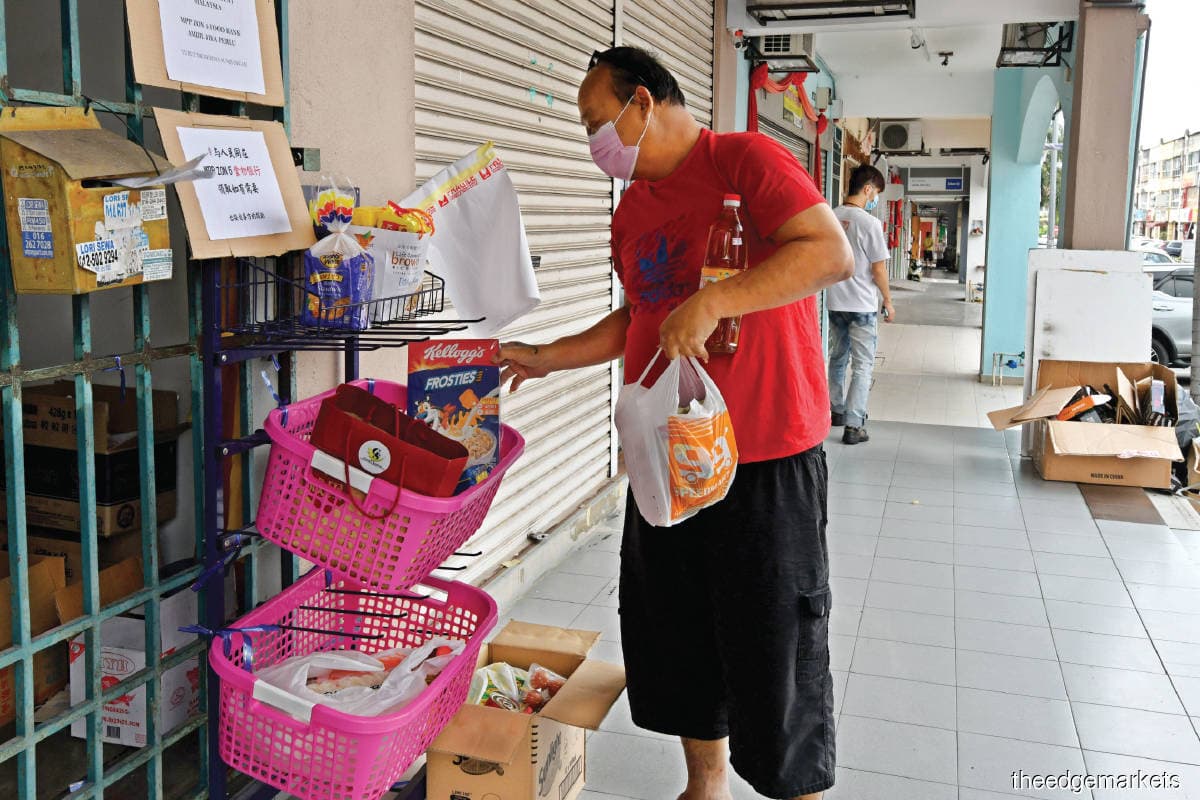
This article first appeared in The Edge Malaysia Weekly on December 27, 2021 - January 2, 2022
Measures to rescue the economy and fortify the country against Covid-19 took centre stage this year in an all-of-nation approach
Khairy Jamaluddin
Minister of health, coordinating minister of the Covid-19 National Immunisation Programme and member of parliament for Rembau
An effective national public health response is critical in saving lives and overcoming the Covid-19 pandemic. First as immunisation minister under the Perikatan Nasional government, then as health minister in Prime Minister Datuk Seri Ismail Sabri Yaakob’s cabinet, Khairy Jamaluddin spearheaded the National Covid-19 Immunisation Programme (PICK) and led the country to achieve one of the highest vaccination rates in the world.
Although the handling of the pandemic under the PN government was heavily criticised, Khairy was regularly cited as one of the best performing ministers.
Nonetheless, he often came under fire on social media for various shortcomings of PICK and the MySejahtera app.
Based on the rollout of PICK, he has done a commendable job as the vaccination rate picked up pace after the initial delay in the procurement and introduction of vaccines. His priorities as the minister tasked with procurement and coordinating the logistics of the biggest vaccination drive in history were vaccinating high-risk groups, protecting frontliners and extending vaccination coverage to the general population.
As health minister — replacing Datuk Seri Dr Adham Baba, who became a controversial figure after he made a series of gaffes — Khairy was entrusted with both healthcare and vaccinations.
A few days after taking office, Khairy wasted no time in explaining the need for long-term plans to deal with Covid-19 after a year of repeated shutdowns that weighed heavily on the economy. He stated that testing was mandatory, the mask mandate was extended indefinitely and home quarantines would be the norm for those infected with the coronavirus.
He said action would be taken against companies, factories and government agencies that violate standard operating procedures. In addition, he promised data transparency in the future to change public perception and counter allegations against the Health Ministry that it was secretive and selective with Covid-19 data.
Khairy's mission is to steer the nation toward “living with the Covid-19 virus”, which is key to the government's endemic strategy. Now that the endemic strategy is on hold due to the emergence of the Omicron variant, what will his plan be in 2022? — By Syafiqah Salim
Tengku Datuk Seri Zafrul Aziz
Minister of finance
Tengku Datuk Seri Zafrul Aziz’s second year as finance minister played out as an endurance run, as the prolonged Covid-19 pandemic and political uncertainty that started in 2020 continued to play out in the background as the country struggles on the road to recovery.
The extended pandemic shock in early 2021 meant that Zafrul had to delay certain fiscal reform targets while contending with a downgrade of the country’s economic growth forecasts and sovereign ratings.
At the same time, the government focused its tightening resources on saving lives and livelihoods, including via additional economic packages totalling RM225 billion revealed between January and June this year. Billions of ringgit in cash handouts and allocations for hiring programmes and wage subsidies were channelled out, among others.
As the country moved towards reopening, Zafrul was appointed the coordinating minister for the National Recovery Plan (NRP) in July. In October, he tabled yet another record federal budget of RM332.1 billion for the year 2022.
The minister also had to address key issues constantly raised by the public, the opposition and even MPs within the federal government — including calls for an extension of the loan moratorium, further withdrawals of Employees Provident Fund savings by contributors, and claims of insufficient allocation to combat the pandemic and provide job security to the general public.
Meanwhile, the repatriation of 1Malaysia Development Bhd funds by the billions continued this year. The bombshell of a one-off “prosperity tax” on large companies and the push for 5G rollout under a new mechanism via Digital Nasional Bhd were among the highlights of the technocrat’s year in 2021.
One of the few ministers who consistently called for political bipartisanship, the senator survived political upheaval and has now served two prime ministers, having been retained in his post by Datuk Seri Ismail Sabri Yaakob after he was appointed prime minister in July.
“When lives are clearly at stake and our healthcare is tottering, we must rise above our differences and work together so we can truly bring the country out of the doldrums of this wretched pandemic,” said Zafrul in a commentary.
More importantly, the big task at hand will be to facilitate the diversification of the nation’s income, which is still much dependent on oil revenue, at a time when tax collections have dwindled in the economic downturn. Will the ministry bite the bullet and reintroduce the consumption-based tax as part of its long-term tax reform agenda? — By Adam Aziz
Save by subscribing to us for your print and/or digital copy.
P/S: The Edge is also available on Apple's AppStore and Androids' Google Play.


